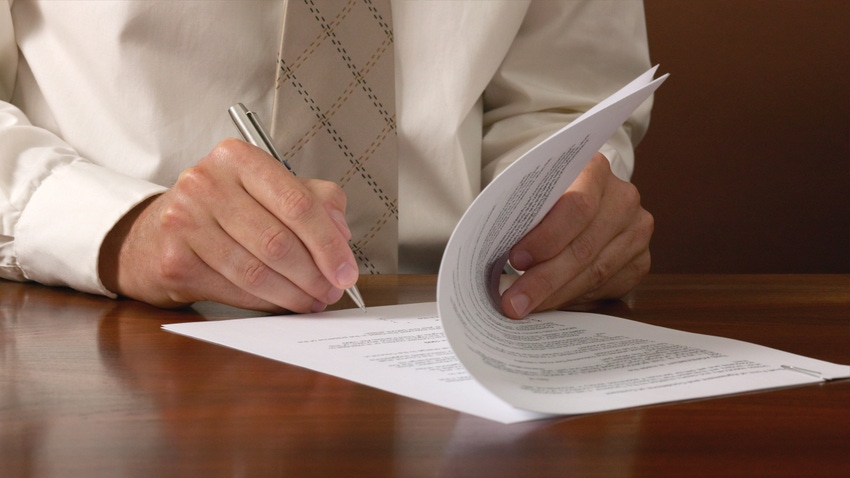September 12, 2023

Imagine that a farmer hires a general contractor to build his new milking parlor. Several years after the parlor was built, it is discovered that the parlor equipment generates stray voltage. The stray voltage has caused loss of milk production and herd health issues. Unfortunately, some or most of the farmer’s claims against the general contractor may be barred by a judicially created doctrine called the economic loss doctrine.
The economic loss doctrine is a rule of law which generally provides that when a person buys a product, claims against the seller based on the tort of “negligence” are barred unless the product causes damage to a person or to property other than the product itself. If the economic loss doctrine applies, the buyer will not be permitted to bring a negligence claim, and instead will be limited to bringing a breach-of-contract claim.
Remedies for breaches of contract are often more limited than remedies allowed under a negligence claim. For example, many contracts include provisions waiving the right to recover consequential damages — which are available with a negligence claim. An example of consequential damage would be a loss of profits or revenues.
Also, the statute of limitations for bringing a breach of contract claim can, in some instances, be shorter than the statute of limitations for bringing a negligence claim.
Why economic loss rule exists
The rationale for the economic loss rule is that where a contract exists, the parties have freely negotiated to include or exclude terms governing the parties’ respective rights, obligations and remedies. If a party to that contract could extend its remedies beyond those set forth in the contract, this would effectively allow the party to obtain something more than (or inconsistent with) what they bargained for in the contract. This is especially true in the products liability context, where the economic loss rule first arose.
While all states have adopted the economic loss doctrine, it is applied more or less strictly by courts across the 50 states.
The application of the economic loss doctrine makes having a written contract even more important than a farmer may think. In a contract or business agreement, the representations and warranties act as assurances given by one party to the other. While the actual contract and terms of the agreement may differ, the ideas of representation of facts and warranty to protect the involved parties are the same across all types of contracts. A buyer should rely on these representations as fact unless proven otherwise. Representations and warranties used together serve as the best form of protection for a farmer receiving a product or good.
It is generally recommended that a farmer hire a contract lawyer to assist with editing, reviewing, drafting or revising warranties in a contract. A contract lawyer can help prevent future breach of contract issues and other legal disputes; avoid the chances of forming an illegal, unconscionable or voidable contract; and ensure that all terms and conditions in the contract are what the parties intended.
A warranty contract is crucial to the success of many farm business arrangements because it legally binds the parties involved to their representations, warranties and obligations as enumerated under the contract. Simply put, a well-drafted contract is the best defense for a farmer against the effects caused by application of the economic loss doctrine.
Schneider is a partner in the ag law firm Twohig, Reitbrock, Schneider and Halbach. Call him at 920-849-4999.
About the Author(s)
You May Also Like






